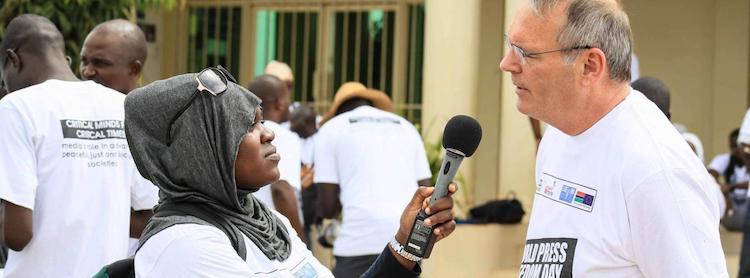Viewpoint by Rev. Gabriel Odima*
MINNESOTA USA (IDN) — When electoral fraud began to replace the ballot as means to install rulers like the case of Kenya today, corruption, suppression of human rights and freedoms became the leading force of governance in Africa.
In every country where rulers were installed after fraudulent election, the first casualty became the constitution, political parties including its elected parliament. The United Nations Security Council, the international media, human rights organizations and Washington mounted no serious campaign to forestall what has now befallen the people of Kenya.
The saga in the frustration of democracy and lack of enforcement of human rights by the citizens became absurd when the IBEC (the body that is responsible for elections in Kenya) declared William Ruto as President-elect after only partial results were declared. Mr Chibutaki the chairman of the IEBC, arrogantly and cynically refused to give reason or reasons for his declaration of William Ruto as President-elect.
The rush by the international community to support Mr Chibutaki’s move was contrary to the stand taken by the international community in Angola. The Angolan Presidential and Parliamentary elections of 1992 supervised by the Security Council of the UN, the same Council ordered the Electoral Commission not to announce the results until the election results had been studied, verified and endorsed by the losing Presidential candidate.
After declaring that no one had won the Presidential elections, the same losing candidate proceeded to re-launch the war and make it impossible for the Presidential election to be rerun.
In Kenya, the trickery is concealed to the outsider, or foreigner by a fraudulent election in which the Kenya Supreme Court ruling of September 5, 2022, reinforced the electoral fraud as a legitimate process.
Democracy is under attack, and it is about time for the international community to address the issues of electoral fraud, corruption, accountability and transparency built around the basic virtues of hard work, dedication, and sacrifice.
The United States has an obligation to enforce and protect the fundamental issues of human rights and democracy in Africa. In recent years U.S. foreign policy towards Eastern Europe has been consistent with the democratic norms and inspirations of the United States, unlike the situation in Africa where Washington continues to pursue a quasi-policy.
As the world’s greatest democracy, we have to take an active role in leading the world of democracies and Africa should be high on our agenda. Washington should help Africa move from the stigma of colonial legacy to a viable society where electoral fraud is no longer a threat to democracy and where dictators will be brought to justice and held accountable for their atrocities against their people.
In 1998 when President Clinton visited Africa, he called President Yoweri Museveni of Uganda the late President of Ghana, Jerry Rawlings, President Paul Kagame of Rwanda (then Vice President), late Prime Minister Zenawi of Ethiopia and President Afewerki of Eritrea the “new breed of African leaders with vision for the continent”.
The irony of the new breed of African leaders were individuals who had come to power by the gun, not by the ballot. During World War 1, President Woodrow Wilson called on American to fight the war in order to make the world safe for democracy.
What happened in Kenya on August 15, 2022, when Mr Chibutaki declared William Ruto as President-elect and the luck of transparency will continue to haunt the people of Kenya. It is morally wrong for any leader in Africa to use electoral fraud as a path to leadership.
There are several reasons why many Kenyans accept the electoral fraud as free and fair elections: Two of them stands out. The first is the tendency of both the politicians and the religious leaders in a country faced with a difficult political or economic situation to accept wittingly or unwittingly a new regime established by the electoral fraud.
The second is the powerful influence of external forces, namely foreign governments, international media and human rights organizations, when they give support and accolade to regimes established by electoral fraud.
On September 15, United Nations General Assembly will be meeting in New York and discussing the danger facing democracy around the globe which will not be on the agenda or raised by a member state.
It seems to me that for the immediate future, the Kenyan Supreme Court, the international community and the international media have performed a political coronation of William Ruto as the 5th President of Kenya against the wishes of millions of Kenyans.
This is a dark moment for democracy in Africa and particularly for the millions of Kenyans. Only a democratically elected government, will foster human development in Kenya.
*The Rev. Gabriel Odima is President & Director of Political Affairs, Africa Center for Peace & Democracy, Minnesota, USA.
Photo: A project funded by UNDEF in The Gambia works to enhance Media-Government Relations to Improve Legal Environment for Freedom of Expression. Credit: Gambia Press Union
IDN is the flagship agency of the Non-profit International Press Syndicate.
We believe in the free flow of information. Republish our articles for free, online or in print, under Creative Commons Attribution 4.0 International, except for articles that are republished with permission.

